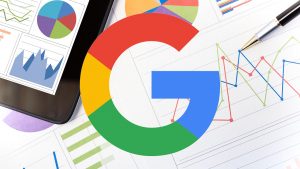If you’re not using the right accounting software, you could be wasting a lot of time and money. The right software will streamline your business processes, letting you easily invoice your customers and track your sales, billable hours, bank accounts, and expenses. A good accounting package will also give you feedback on profits, sales, and cash flow so you can make good business decisions quickly. Here’s how to find the right software for you.
Know What You Need
Nearly all accounting software will handle your invoicing, bank reconciliations, and simple reporting. Beyond that, the features can vary widely, so make a list of what’s vital to your business. Does the law require any specific accounting procedures for your industry? Do you need to track billable hours or inventory? Do you need to manage your own payroll?
Find Software That Plays Well With Others
Will you need your accounting software to integrate with other programs? Some will work with your inventory management, payment gateway, or contact management programs. Most will let you import your bank transactions.
Start Small, But Account For Growth
Accounting software is a big investment, but most labels offer various packages. Start with the simplest program that can handle your needs, but with an eye toward what kinds of upgrades will be available as your business grows. Take advantage of opportunities to try the software to see whether the user interface feels intuitive to you. Most programs will offer an online or downloadable demo, or a 30-day trial offer.
How Mobile Are You?
If you or your staff work on the fly a lot, look for cloud-based software. An Internet-based accounting program, like Sage, will let you access or input information from anywhere. As long as you have a mobile or Wi-Fi connection you can keep your records up-to-date. Small businesses operate best when they’re fast and agile. Fast entry of new sales and expenses means speedy cash flow and up-to-date information for fast decision-making.
What Is Your Background?
Do you or any of your staff already have training or experience using a particular program? Do you have any accounting background at all? If not, it’s best to choose something simple and friendly with good customer support to begin with.
Talk To Your Accountant
Good software will let you bring many tasks in-house, giving you faster access to the data you need and saving you the cost of regular bookkeeping — but it will not replace your accountant. You still need the advice and oversight of a professional who knows how to do tax planning and financial management. Before you select a program, make sure your accountant approves and is happy to receive reports from the software you’ve chosen.
Your company’s accounting software will become a big part of the corporate culture. A user-friendly program that’s well-suited to your business needs will make entering sales and working with financial data a treat, not torture. Finding the right solution is worth the time and effort you’ll put in and could ultimately boost your bottom line.
(219)







